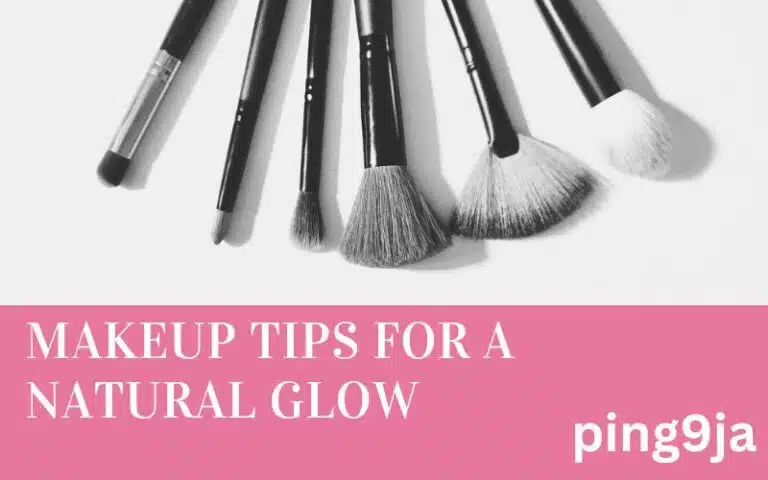You will agree with me that deciding on the right makeup routine, especially if you have sensitive skin can be difficult at times. The slightest mistake and your face is red, itchy, or breaking out with pimples.
Don’t worry though – with the following few tips, you may look as good as the celebrities.
In this article, I will share some useful recommendations on how to prevent skin issues while wearing makeup on sensitive skin.
Makeup Tips For the Sensitive Skin
The following are some tips for sensitive skin:
8. Start With a Clear Skin
The first thing that you should do before even dreaming of applying foundation is that your face has to be clean.
Choose a very mild and preferably unscented soap that should not dry up your skin or remove all the natural oils from it.
This is best done with lukewarm water – don’t use hot water as this will leave your skin feeling rather taut and uncomfortable.
Take a soft towel and pat your face dry rather than rubbing as this can cause redness and itching to the skin.
After washing, allow your skin some time to dry before proceeding to the next step. This little break can also minimize the chance of irritation when you start applying products.
7. Moisturize, and Moisturize
Let me emphasize this – moisturizing is a must to protect your sensitive skin. At this, I recommend finding a light non-comedogenic moisturizer that does not contain oily ingredients.
Substances like hyaluronic acid and ceramides are suitable for giving the skin an easy moisture boost without leading to skin sensitivity.
It is important to apply the moisturizer while the skin is a little damp, after washing it. This helps set that extra hydration in place.
Take some time and let it settle in before applying some makeup. Honestly, your skin will not regret you giving it this extra level of attention.
6. It’s Primer Time
A good primer is perhaps the best investment a lady with sensitive skin can make. This layer acts as a shield between your skin and the makeup products that you apply to your face.
Nevertheless, when choosing a primer, look for those labeled ‘for use on sensitive skin’ as many of them contain aloe vera.
While applying it, make sure not to rub it but rather pat gently on the surface. This reduces tension on the skin which can result in the formation of spots.
You can start with small quantities, and this can then be increased depending on the extent of the problem.
5. Choose Your Foundation Wisely
As for foundation, it is better to choose mineral makeup if you have problems with your sensitive skin.
They contain fewer ingredients, so they cannot irritate easily. Search for the foundation that is marked as “hypoallergenic” or “for sensitive skin. ”
Liquid foundations are generally more favorable and hydrating than powdery ones as the latter tends to dry out the skin.
When using it, use a clean brush or a sponge instead of washing it on your fingers. This goes a long way in preventing the spread of oils and bacteria to your face. And let me repeat it once more: simplicity is the ultimate sophistication.
4. Be Careful with Concealer
Concealer can be a little problematic for sensitive skin, let alone the skin around the eyes. Avoid buying products that are in matte finish because they tend to pull the skin when applied.
It’s preferable to choose concealers that do not contain fragrance, as they can be quite problematic.
When applying it, it is recommended to use your ring finger, or a small brush to dab it into the skin. Do not scratch or pull your skin. The best approach is to apply layer after layer in very thin layers rather than applying a very thick layer.
3. Remember To Do a Patch Test First
A patch test is very important if there is a new makeup product you wish to incorporate into your regimen.
How is this done? Take a small amount of the product and rub it on an area that is not visible such as the back of the ear or the wrist, and wait for 24 to 48 hours.
However, if your skin area does not cause redness, itching, or any kind of irritation then you are in the right place to apply it on the face.
This small effort can prevent you from a lot of discomfort in the future, particularly if you are experimenting with a new foundation or concealer.
2. Stay Away from Fragrance and Strong Chemicals
There is nothing more irritating to sensitive skin than fragrances. Some of the makeup products have synthetic fragrances and may result in adverse effects to your skin such as rash or allergy.
The only way to prevent this is through the use of makeup that does not contain any fragrances.
Furthermore, it is advised to pay attention to ingredients that are often listed in product packages. Products such as alcohol, parabens, and sulfate will cause more harm than good.
Always use products with mild and natural ingredients to minimize the chances of worsening the skin condition.
1. Don’t Forget Your Lips
The lips also need some love too!
You have to choose lip products with moisturizing effects rather than those containing substances such as menthol or cinnamon.
For instance, a basic lip balm containing natural products can be very effective in making your lips silky and slippery.
If you are going to use lipstick or lip gloss, you can also apply lip balm as your barrier. And just as with the rest of your makeup routine, begin with a small amount, gradually increasing if necessary.
Last of all, remove with Care
Finally, the manner you use to remove the makeup is as important as the manner you put it on. Do it gently so that you don’t harm the skin by scratching.
Patience is key – the longer you leave your makeup on, the worse the outcome may be at night when you remove it.
As a final step, wash the face again and then proceed with the usual skin care regimen. Your skin tends to renew itself at night, so this is also the best time!







